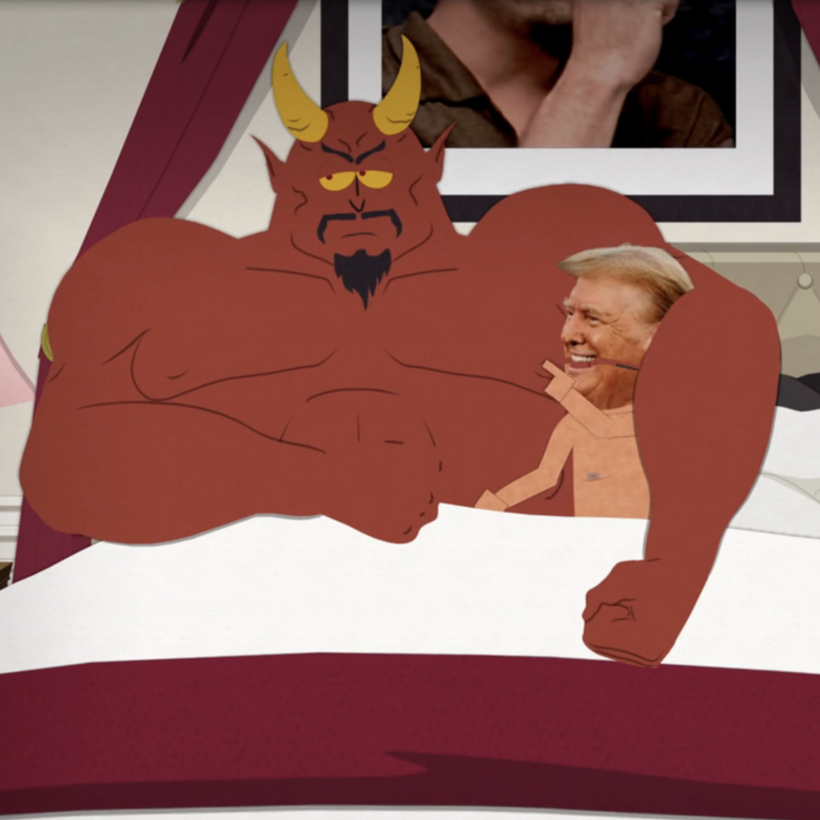“Such impudence!—it’s like being alive,” the critic Marvin Mudrick marveled of the writing of fellow critic and provocateur Harold Rosenberg. The sucker punch thrown by this summer’s edition of South Park has the same jolted-awake effect, blowing a hole of daylight to let the raw air in.
Now in its 27th season on Comedy Central, an endurance record topped only by The Simpsons, Trey Parker and Matt Stone’s animated comedy about a small community of foulmouthed kids and put-upon adults in Colorado—a Lake Wobegone of underachievers—has been a taboo breaker from day one, as evidenced by episodes titled “Cripple Fight” and “Crack Baby Athletic Association.” Adding to their maverick cred, Parker and Stone’s raucous, profane musical, The Book of Mormon, is a long-running Broadway smash. They’ve definitively demolished the old show-business adage that “satire is what closes on Saturday night.”


